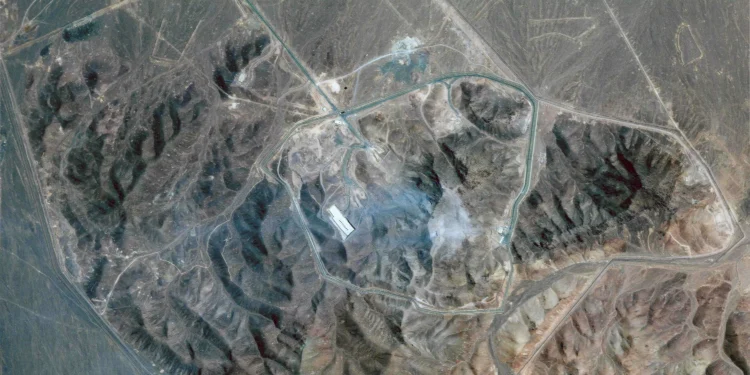In recent weeks, President Donald Trump has made bold claims about the state of Iran’s nuclear program. In a tweet on November 17th, he declared that Iran’s nuclear sites had been “obliterated” and that the country was “no longer a threat.” However, these statements have been met with skepticism from defense officials and the intelligence community, who say that Trump’s claims are “overblown” and not supported by evidence.
The controversy began when Trump withdrew the United States from the Iran nuclear deal in May 2018, citing concerns about the country’s nuclear ambitions. The deal, also known as the Joint Comprehensive Plan of Action (JCPOA), was signed in 2015 by Iran, the United States, and five other world powers. It aimed to limit Iran’s nuclear program in exchange for lifting economic sanctions.
Since then, Trump has repeatedly claimed that Iran is secretly working to build a nuclear bomb, despite the fact that the International Atomic Energy Agency (IAEA) and the intelligence community have consistently stated that Iran is in compliance with the JCPOA and is not pursuing nuclear weapons.
In his latest tweet, Trump stated that Iran’s nuclear sites had been “obliterated” and that the country was “no longer a threat.” This statement was met with skepticism from defense officials, who say that there is no evidence to support Trump’s claim.
One defense official, speaking on the condition of anonymity, told The Intercept that Trump’s claims were “overblown” and not based on any intelligence. The official also stated that there has been no change in the status of Iran’s nuclear program and that the country is still in compliance with the JCPOA.
The intelligence community has also weighed in on the matter, with a senior intelligence official stating that there is no evidence to suggest that Iran is building a nuclear bomb. The official also stated that the IAEA has access to all of Iran’s nuclear sites and has not reported any violations of the JCPOA.
Despite these statements from defense officials and the intelligence community, Trump continues to make bold claims about Iran’s nuclear program. This has raised concerns among experts and lawmakers, who fear that Trump’s rhetoric could escalate tensions with Iran and potentially lead to military action.
In response to Trump’s claims, Iranian officials have stated that the country’s nuclear program is peaceful and that they have no intention of building a nuclear bomb. They have also accused Trump of spreading false information and using it as a pretext for aggression against Iran.
The controversy surrounding Trump’s claims highlights the importance of accurate and evidence-based information in international relations. In the absence of concrete evidence, it is crucial for leaders to refrain from making unsubstantiated claims that could have serious consequences.
Furthermore, Trump’s statements also raise questions about the credibility of the United States on the global stage. By making baseless claims and disregarding the findings of the intelligence community, Trump undermines the trust and credibility of the United States in the eyes of the international community.
In conclusion, while President Trump may continue to make bold claims about Iran’s nuclear program, it is important to rely on facts and evidence rather than unsubstantiated statements. The defense officials and the intelligence community have made it clear that there is no evidence to support Trump’s claims, and it is crucial for leaders to base their decisions on accurate information. Let us hope that in the future, leaders will prioritize the pursuit of peace and stability rather than spreading false information and escalating tensions.






